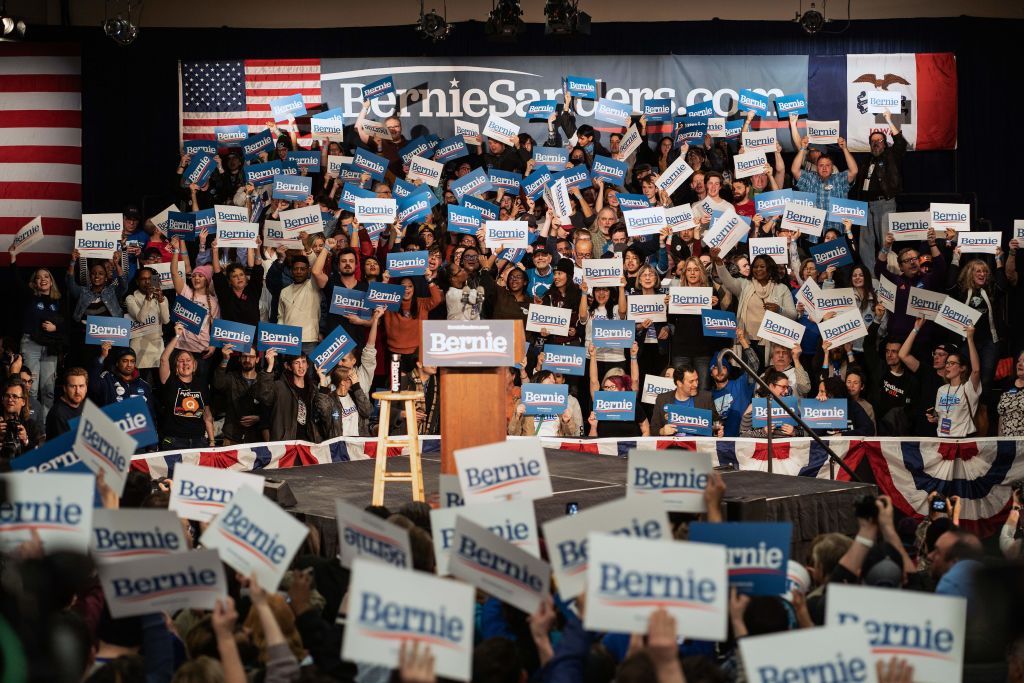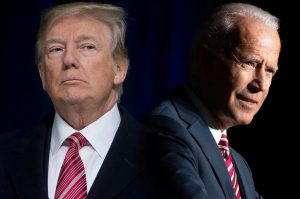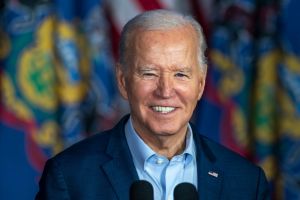It might be a stretch to compare the ugly-but-not-violent warfare of American politics in 2020 with the explosive politics of the 1960s. But history does repeat itself, as the hackneyed old phrase says: first as tragedy then as farce.
Consider the common thread linking these two political epochs: the rise of a messianic left that sabotaged two attempts by the Democrats to take over the White House, which eventually forced the party to change direction and move to the center.
In 1968, the Democratic leadership wanted to campaign on President Lyndon B. Johnson’s historic civil-rights legislation and his efforts to reinforce the foundations of the welfare state with the Great Society programs, steps that enjoyed wide national support. The party selected as its presidential nominee LBJ’s vice president Hubert Humphrey, a former senator from Minnesota.
Humphrey represented the moderate wing of the Democratic party: a politically centrist Midwesterner who enjoyed the backing of the establishment as well as most of party activists. That is why he had won the nomination.
But then the New Left arrived: a user-friendly version of Marxism whose followers, like the identity politics crowd of today, regarded politics as a form of religion and who, consequently, were disconnected from political realities and out of touch with the national consensus. Exploiting the anti-Vietnam war sentiments that were sweeping the campuses, this noisy and politically skilled left knew how to employ the then-new medium of television, just as social justice warriors are the masters of Twitter today, and succeeded in dominating the political debate.
The New Left became the public face of the Democratic party in the eyes of Middle America by ostentatiously romancing the Black Panthers, allying with wacky feminists, calling for a world revolution and idolizing Mao, Che Guevara and Ho Chi Minh: ‘Hey, Hey, LBJ, how many kids did you kill today’ and ‘Ho Ho Ho Chi Minh, the NLF is gonna win!’.
The left failed to mobilize support for their preferred candidates, Sens. Eugene McCarthy and Robert F. Kennedy (who was assassinated by a Palestinian gunman during the campaign). At the 1968 Democratic convention in Chicago the left went berserk. Days of violent protests made it clear that its members were not going to vote for candidate Humphrey in November.
A Republican party led by Richard Nixon ended up winning the popular vote in 1968 by a small margin and the electoral college by a larger one, thanks in part to Democrats who had deserted their party to support the third-party candidacy of Southern segregationist George Wallace.
Despite the Democratic loss, many of the left argued that things would have turned out differently had RFK not been assassinated. So the nutty left continued in its march forward, until it had essentially taken over the Democratic party, culminating in its victory in 1972, when the left’s candidate man, Sen. George McGovern, won the Democratic nomination. McGovern lost the general election, with President Nixon getting re-elected in a landslide, losing only in Massachusetts and the District of Columbia.
The 2020 elections will of course not be an exact rerun of the White House races in 1968 or 1972. The country has, after all, has changed dramatically in so many ways since the late 1960s and early 1970s. But there is still the danger of the Democratic party turning into a ‘cult’, as James Carville has warned, just as the center-left shifted to the radical left after 1968, devastating the party and leading to defeats in 1968 and 1972.
The Democrats today are therefore damned if they nominate Sanders, damned if they don’t. Bernie Sanders is no George McGovern, a Midwestern gentleman who had served as a fighter pilot during World War Two. But the fanatics who adhere to the identity politics cult and dream of nationalizing sectors of the American economy believe that the old socialist from Brooklyn is the chosen one. They also believe that any attempt to block Bernie by a former vice president, a Minnesota senator or, if you can imagine it, a successful business executive would be nothing less than halting the march of history. And they can’t allow that to happen, can they?



















